News
-
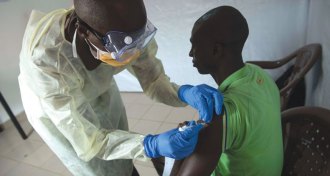 Health & Medicine
Health & MedicineEbola vaccine protects people in West Africa
In Guinea trial, zero cases of Ebola occurred in people potentially exposed who received immediate shots of a new experimental vaccine.
By Nathan Seppa -
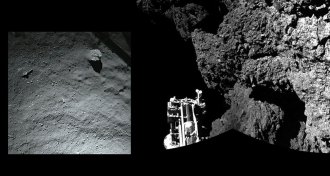 Planetary Science
Planetary ScienceNew results from Philae lander offer first close-up of a comet
Philae’s bouncy journey across comet 67P allowed it to check out two very different sites before taking a detailed look at both the inside and outside of the comet.
-
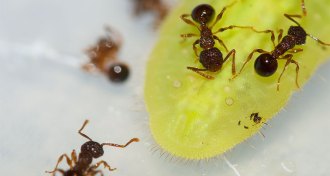 Animals
AnimalsCaterpillar treats and tricks ants by oozing spiked juice
Caterpillars ooze droplets that lure ants away from colony duties to instead lick and defend their drug source, new lab tests suggest.
By Susan Milius -
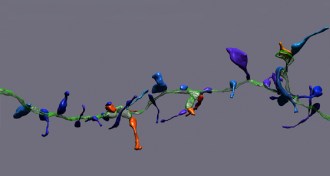 Neuroscience
NeuroscienceNew view of mouse brain provides up-close look at nerve cells’ habitat
Detailed reconstruction of a tiny fleck of mouse brain reveals neural complexity.
-
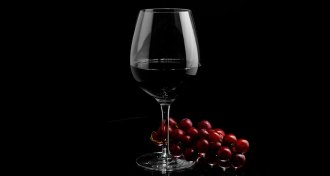 Health & Medicine
Health & MedicineResveratrol’s anticancer benefits show up in low doses
Small amounts of the compound found in red wine and grapes prove protective against colon cancer in mice fed a high-fat diet.
-
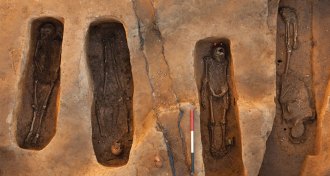 Anthropology
AnthropologyRemains of Jamestown leaders discovered
Colonial-era graves reveal leading figures in founding of English America.
By Bruce Bower -
 Neuroscience
NeuroscienceAge affects brain’s response to anesthesia
Anesthesia has different effects on young and old brains.
-
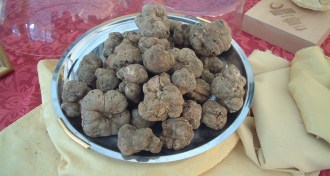 Life
LifeMicrobes’ role in truffle scents not trifling
Truffles make their prized aroma with a little help from their microbes, chemists suggest.
By Beth Mole -
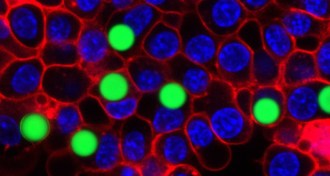 Life
LifeLaser light made inside cells
Microscopic beads and oil droplets become lasers when implanted into cells.
By Andrew Grant -
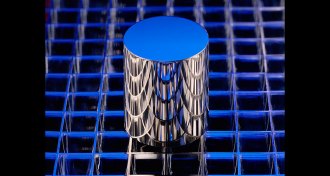 Physics
PhysicsRevamping the metric measure of mass
The units of the metric system are on track for a 2018 makeover.
-
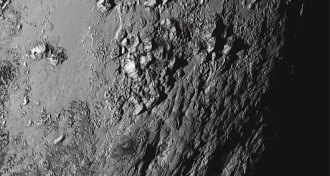 Planetary Science
Planetary SciencePluto’s icy landscape comes into view
The New Horizons flyby reveals varied terrain and evidence of active geology on Pluto.
-
 Planetary Science
Planetary ScienceIce flows, haze offer more clues to Pluto’s geology
New Horizons’ latest data reveal more hints about Pluto’s shrinking atmosphere and possible underground ocean.